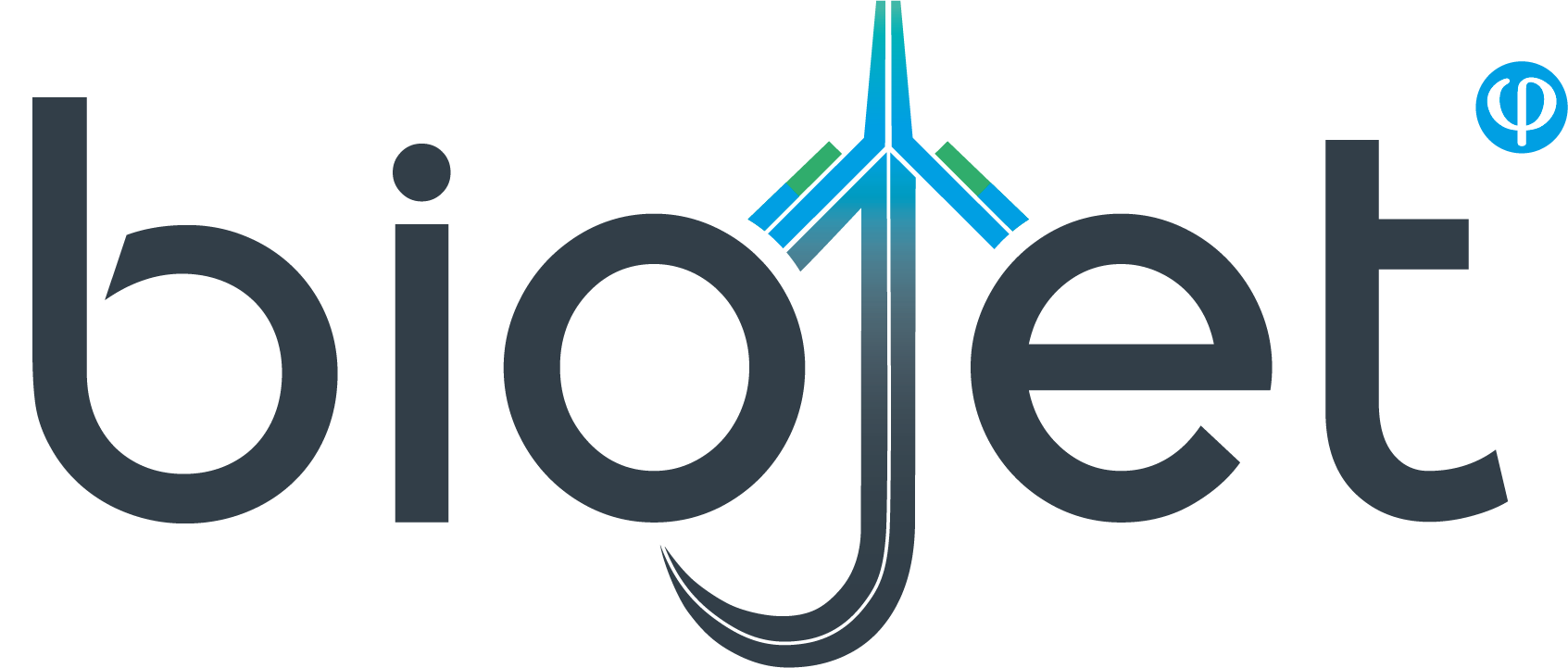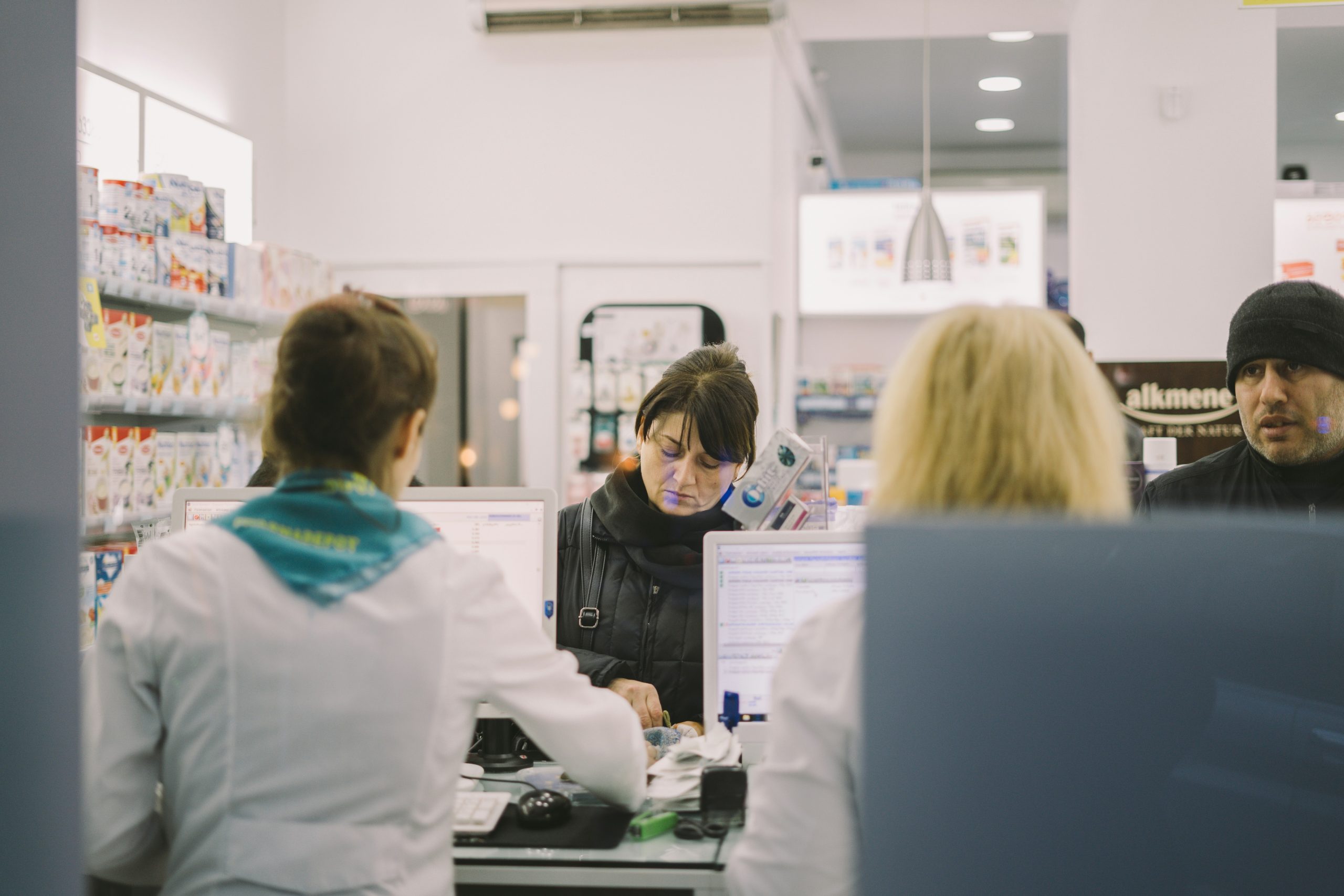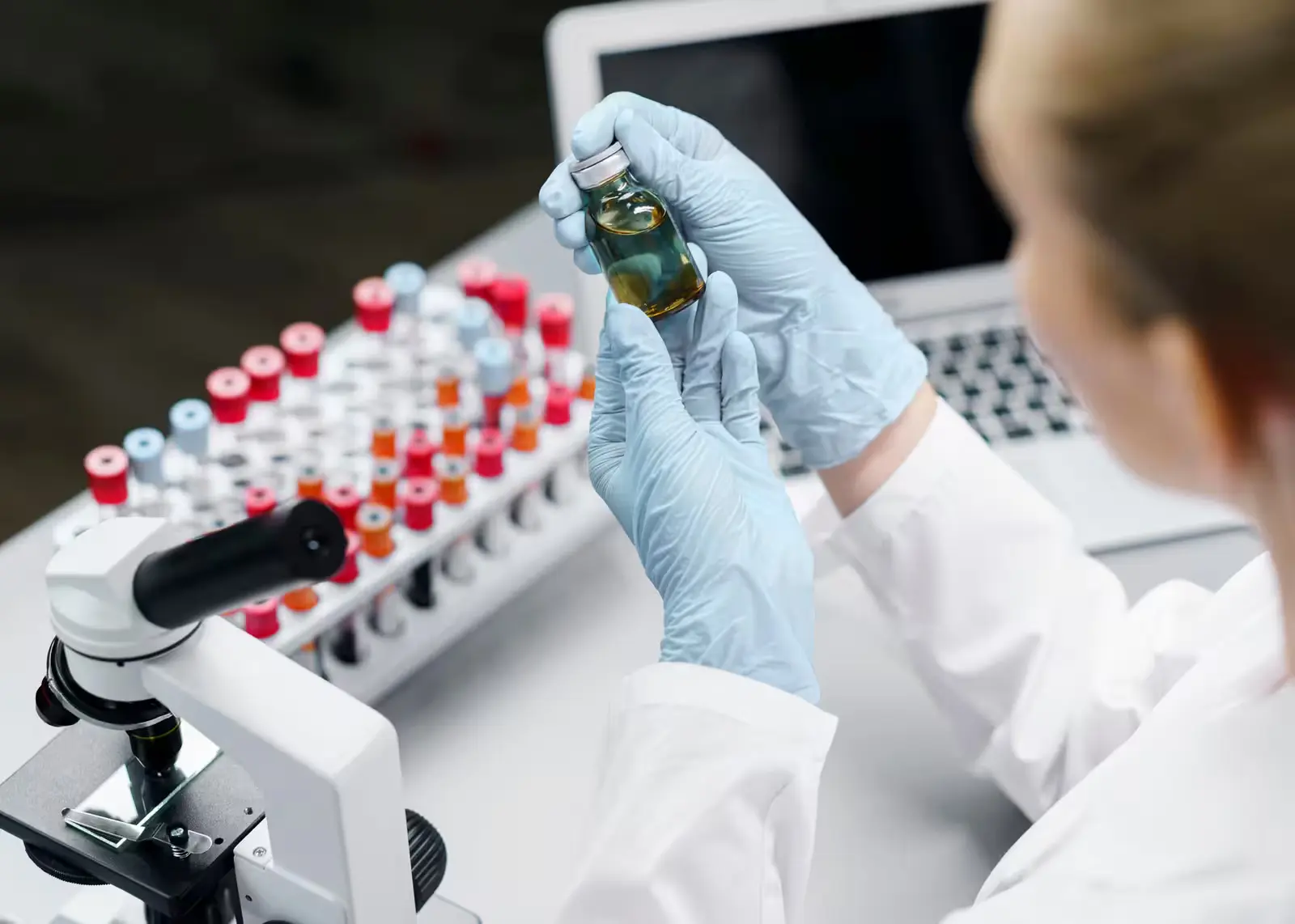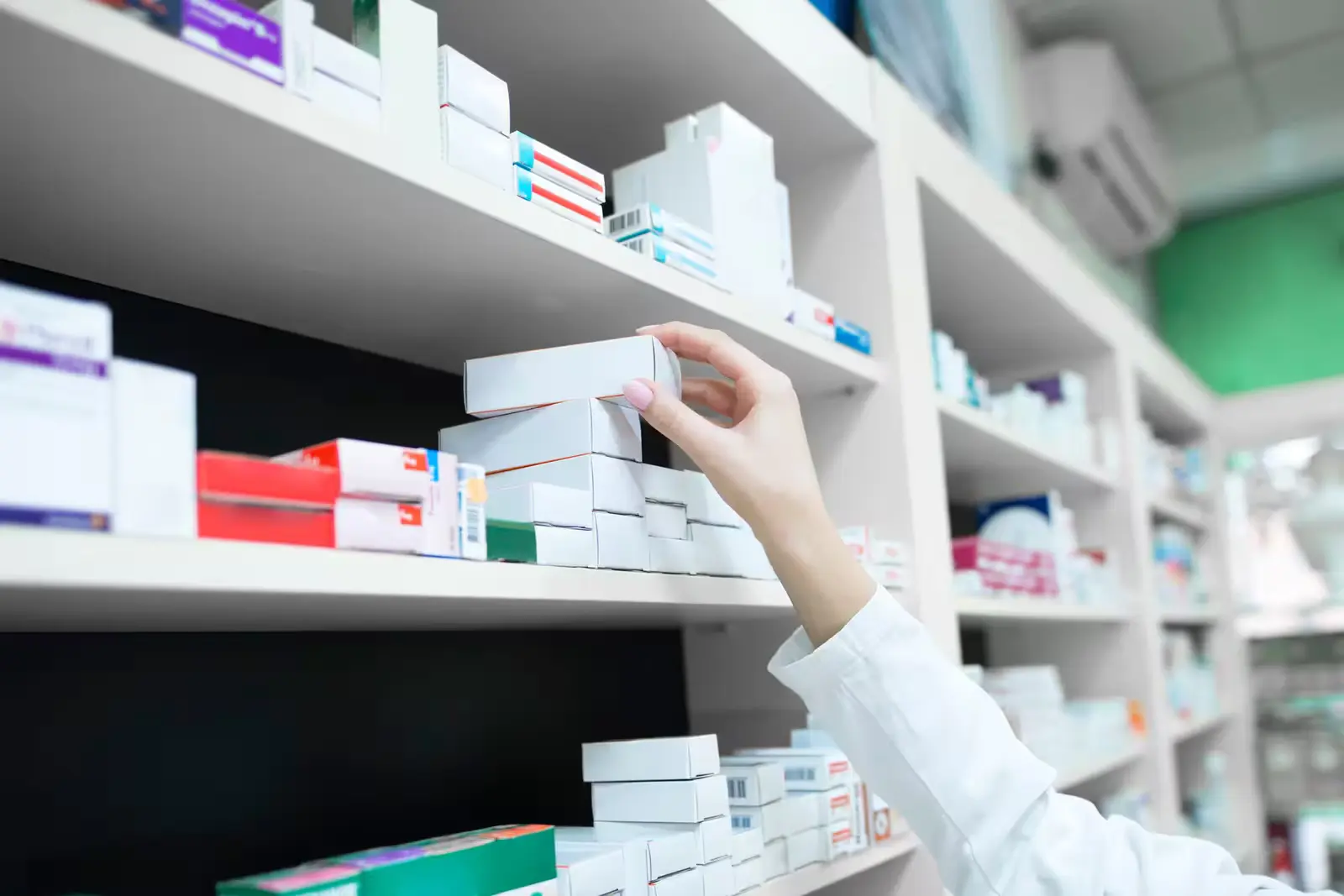A dull story
The announcement of the sale of Andrei Godovalov’s house in Perm has been removed from publication on Avito. Foam blocks with a facing of solid brick on the outside, calm (though not without designer sophistication) interiors inside. A canopy for several cars, a romantic bench under apple trees gaining strength, a playground on a 22-acre plot. Water supply. Gas. Nearby bus stop. Again, a pharmacy within walking distance. All for 40 million rubles. Of course, such an asset in free sale would not have stayed for long. Someone bought it, and hopefully, they are happily settling in.
Similarly, the pharmacy chain “Apteka ot Sklada” owned by Andrei Godovalov and Nikolai Shavrin dissolved quickly, along with the distributor named after Andrei. Some points closed, some (of course, without debts) were picked up by market participants. Luckily, there was plenty to choose from. Godovalov and Shavrin were declared bankrupts a couple of weeks ago and owe banks (mostly Sberbank) and distributors almost 8.4 billion rubles.
The partners spent a year in decline. Back in May 2023, market participants sympathetically discussed the sad story with tax claims of 700 million rubles (half of which were successfully challenged in court), but hardly anyone then believed that Godovalov and Shavrin could cope with it. It is important to understand that the partners were not ordinary, but historical and very public players in the pharmaceutical industry, native inhabitants of it. After all, many had the idea in the early 1990s to gather money, buy 100 boxes of citramon at the KhFZ “October” in St. Petersburg and then sell them with a markup of 1,000% and higher in their hometown. But few among them stayed in the pharmaceutical market for three decades and managed to build a holding with peak revenue of 23.9 billion rubles, managing almost 900 pharmacies.
In the “zero years,” the partners were the first in the country to come up with an electronic procurement system for pharmaceutical manufacturers, built a strong regional wholesaler, and after the 2008 crisis, began to engage in retail themselves: at first, they grew organically, and a couple of years later – through landmark deals for their time. Creditors until the last moment did not want to believe in the bad outcome, although some, as they now say, were enough to see the sad face of the usually cheerful Shavrin last summer to realize that he probably does not have the strength (or plans?) to save his company. And indeed, in October, LLC “Godovalov” filed for liquidation, and in November, the partners themselves asked the court to recognize them as insolvent.
The names Shavrin and Godovalov will resurface in the chronicles more than once, as such cases, due to the costs of the Russian debt collection system, drag on slowly and tediously. Take, for example, the case of the former managing director of Alliance Healthcare Russia (remember such a company?) Henry Fogels. Formally, the bankruptcy of the once significant distributor began in 2017 after it was purchased by the “36.6” group. And the decision on the subsidiary matured only in 2023. The auction for the right to claim debts from Fogels in the amount of 6.477 billion rubles was supposed to take place in February of this year. But there were no takers. By the way, where is Fogels now?
Jumping
The market feels that sporadic descriptions of property (houses and apple trees) of the strong players in the pharmaceutical world will resurface on Avito and will repeatedly end up in auctions for someone else’s debts. What can you do, such premonitions, it happens, do not deceive. After all, with any consolidation, no matter how it twists and turns, there aren’t that many forks. And everything the market can do is try to slow down the passage of time and thereby gain something for itself.
Essentially, only one player does not want (or can no longer?) to procrastinate – Vadim Anisimov’s “April”. The discussion of the development plans of this network this year has gone beyond the pharmaceutical industry. Regional landlords, telling each other about the magical “April” that fell from the sky, more resemble fishermen boasting about their catch. According to them, it is easy to negotiate terms and price with “April” because the developers are on fire – they need to open 5 thousand pharmacies by the end of 2024 (in addition to the 7.4 thousand points that were operational on December 31, 2023). At the same time, “April” seems to be becoming a bit more selective and wants to open not just anywhere, but in locations with dense traffic and targeting (up to displacing incumbents) strong competitors such as “Rigla”, “FarmLand”, “Planet of Health”, and so on, as well as strictly local leaders, in order to then fight them in a price war. It is also obvious that on the way to its goal, “April”, consciously or not, has launched a transformation of the commercial real estate market. Previously silent and reclusive, landlords are now talking among themselves and even starting to join forces to buy premises for future “April” outlets. We have already heard the code word “Implode” from landlords in different cities several times (this is also one of the goals of both the rental and price wars). How did an internal term from the pharmaceutical industry describing a network that still, like 10 years ago, does not have an official name and hides from the world behind a conglomerate of legal entities end up in their lexicon without the enlightening work of “April”?
“April” is also active in the labor market, although not revolutionary. Statistics from hh.ru for the end of March – beginning of April show that “April” is most interested in pharmacists or medical consultants (over 300 vacancies) and developers (12 vacancies). The focus on staff reinforcement is on the Southern and North Caucasian Federal Districts (only in the Krasnodar Territory there are 140 existing vacancies), settlements in the Central Russia – from Voronezh (36 vacancies) to Yaroslavl (19), as well as separately in Tatarstan and the Sverdlovsk Region (31 vacancies each). The advance on Moscow, at least for now, is limited to the suburbs. There, “April” currently needs 43 pioneers. The proposed rates are not striking and mainly range from 30,000 to 60,000 rubles depending on the region. For example, in the Moscow suburb of Kurovskoye (90 km from the Moscow Ring Road), “April” is ready to offer a pharmacist 65 thousand rubles and above.
The expansion of “April” is a topic of conversation among all participants in the commercial pharmaceutical market without exception. Apparently, just as, if we believe Leo Tolstoy, shortly before the 1812 campaign, they discussed Napoleon’s foreign campaigns in the secular salons of St. Petersburg and Moscow. In these dialogues, Vadim Anisimov may appear as a new mighty transformer, a brilliant visionary, and a future (in less than three minutes) lord of the industry. Epithets can be listed further. And most importantly, there will only be more of them as long as Anisimov himself maintains a proud public silence. Such is the nature of people – to be fascinated and praise formidable and incomprehensible things. Skeptics, however, are also part of the assortment. But more on that later.
Mysterious Nature
Anisimov remains silent, as he explains (no, not with gestures, of course), until the time comes – until formal leadership is achieved in our or any ranking. And for now, he leaves us the opportunity to guess who and what stands before us, what the “April” exercises in heavyweight athletics will lead to, and, most importantly, where the money for unprecedented expansion comes from.
Deciphering the entrepreneurial phenomenon is not so difficult in essence. Anisimov is flesh and blood of the pharmaceutical industry. In fact, we all have seen or heard about this in the market before, it’s just that he and his project seem to have absorbed a multitude of bright properties and qualities that were previously observed in only one. The scandalousness of the market was already stirred up by the founder of “Farmakor” Alexander Afanasyev. Ivan Saganelydze and Vladimir Kintsurashvili skillfully created a thick lavender fog around their plans and actions (we think it’s not necessary to introduce them separately). Andrei Gusev delighted us with grand experiments in opening thousands of points during his tenure at the “Megapharm” chain, followed by the early “Magnit Pharma” under the management of Valeria Solok. Despite all this, in terms of diligence, teamwork, and discipline, “April” resembles “Protek”, and in terms of decisiveness and militancy, it resembles “Katren” of the 2016 vintage. In short, look for other properties, and we will find in the history of the industry a worthy analog of our hero.
The origin of funds for expansion is still a big mystery. The legend of mysterious high investors who signed up for the “April” crusade has not found substantial confirmation to this day. But the main creditors of “April” – “Pulse”, “Grand Capital” and “Protek” – today pay little attention to this, saying that in financial terms, the counterparty is careful, and there were and still are bank guarantees. And this is a powerful, if not the only, bond on which the entire stability of the pharmaceutical market rests.
And what arguments do the skeptics have? Ultimately, they boil down to the fact that the mountain continues to give birth to a mouse. They say that the openings door to door to the businesses of historical pharmacies do not affect, due to “April’s” approach to assortment management, and the turnovers of the newly emerging pharmacies of the Krasnodar network are sinful to envy.
A year ago, assessments of the quality of expansion were exactly the same. Let’s see if “April” managed to break the negative trend when against the background of astronomical growth in the number of points, the network’s share in one region or another either did not increase or even fell.
So, by the end of 2023, “April” is present in the TOP10 networks in 63 regions, of which it ranks first in nine subjects, and in 21, it is in the top three by revenue share. Which regions bring the main volume to “April”? The TOP5 includes the Krasnodar Territory with 29.2 billion rubles, the Rostov Region with 8.5 billion, the Stavropol Territory with 7.3 billion, Tatarstan with 4.2 billion, and the Samara Region with 3.6 billion rubles, respectively, based on the results of last year.
But objectively, things are only going uphill in the Rostov and Samara regions. The number of points in the first increased by 114, and revenue jumped by 600 million rubles. In the second, “April” grew by 44 facilities during the same period, contributing to a sales increase in the region by 132 million rubles. Our research shows that for the key Krasnodar and Stavropol Territories and Tatarstan, the dynamics remain mixed. The addition of 187 facilities by 2023 in Kuban did not stop the revenue decline by 3.2 billion rubles. Plus 64 new pharmacies, minus almost 870 million rubles in Stavropol. Similarly in Tatarstan: plus 30 points, minus 890 million rubles. A similar situation unfolded for the network in Dagestan, Mari El, the Kirov and Voronezh regions. But in fairness, it should be noted that in many places, it is possible to combine increased coverage with sales growth year-on-year. “April” has made good progress against the backdrop of mass openings in Crimea (plus 550 million), Bashkortostan (plus 700 million), as well as in the Saratov and Smolensk regions, and so on.
Network owners admit that they cannot fail to notice the development of “April”. But is it time to react especially to the unambiguous challenge of an aggressive competitor?
Not directly, after all. It’s just (it so happened) that now is the time to reorganize or regroup. After all, as Sergei Dovlatov wrote, “a smart businessman does not strive for money, he strives for complete, harmonious identity of efforts and results.” According to this principle, the owner of “Katren” Leonid Konobeev decided to redistribute points between his two retail projects – the capital’s “Erkapharm” and Novosibirsk’s “Melodiya Zdorov’ya”. What’s the bottom line? Strengthening “Erkapharm”, which has higher indicators in the region and also has its own strong E-comm, by entering the strategic market of St. Petersburg with the acceptance of more than one hundred “Melodiya” outlets – a reasonable step and a response to the growing share of “36.6” and “Neofarm” in the local market.
The “Protek” group, however, is not idle either. The president of the holding, Vadim Muzyaev, announced plans at a March conference for manufacturers to build a so-called unified commodity-carrying segment. And this is a significant correction of “Protek’s” approach to relations between the retail and distribution divisions, which for decades have lived as if separately from each other: for “Rigla”, the Central Warehouse of “Protek” was one of the suppliers, for the Central Warehouse of “Protek”, “Rigla” was one of the clients.
The new doctrine of “Protek” involves a significant increase in the share “in risk-free channels for the Central Warehouse of “Protek””, that is, in “Rigla”, “ZdravCity”, and “ProApteka”, and close synergy of divisions in the field of marketing. And now there’s no chance of disappointment.
Source: Vademecum, April 18, 2024.








